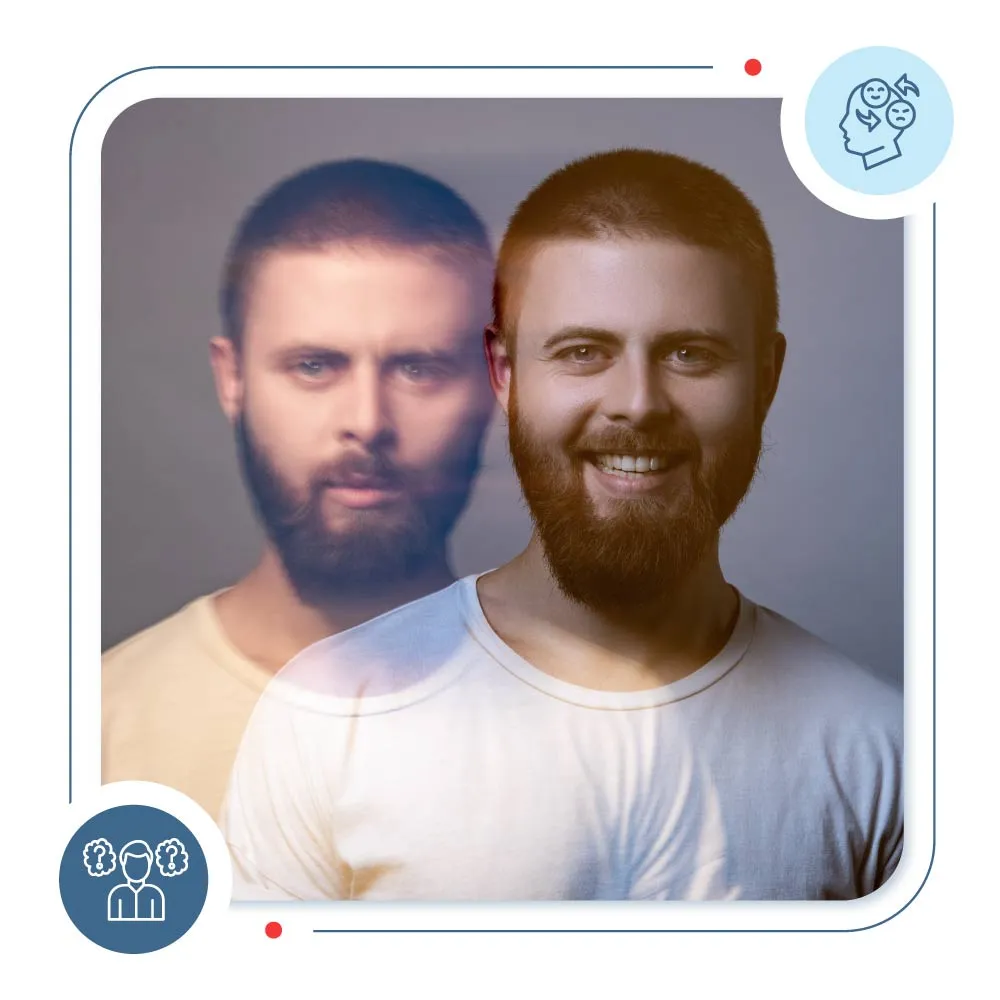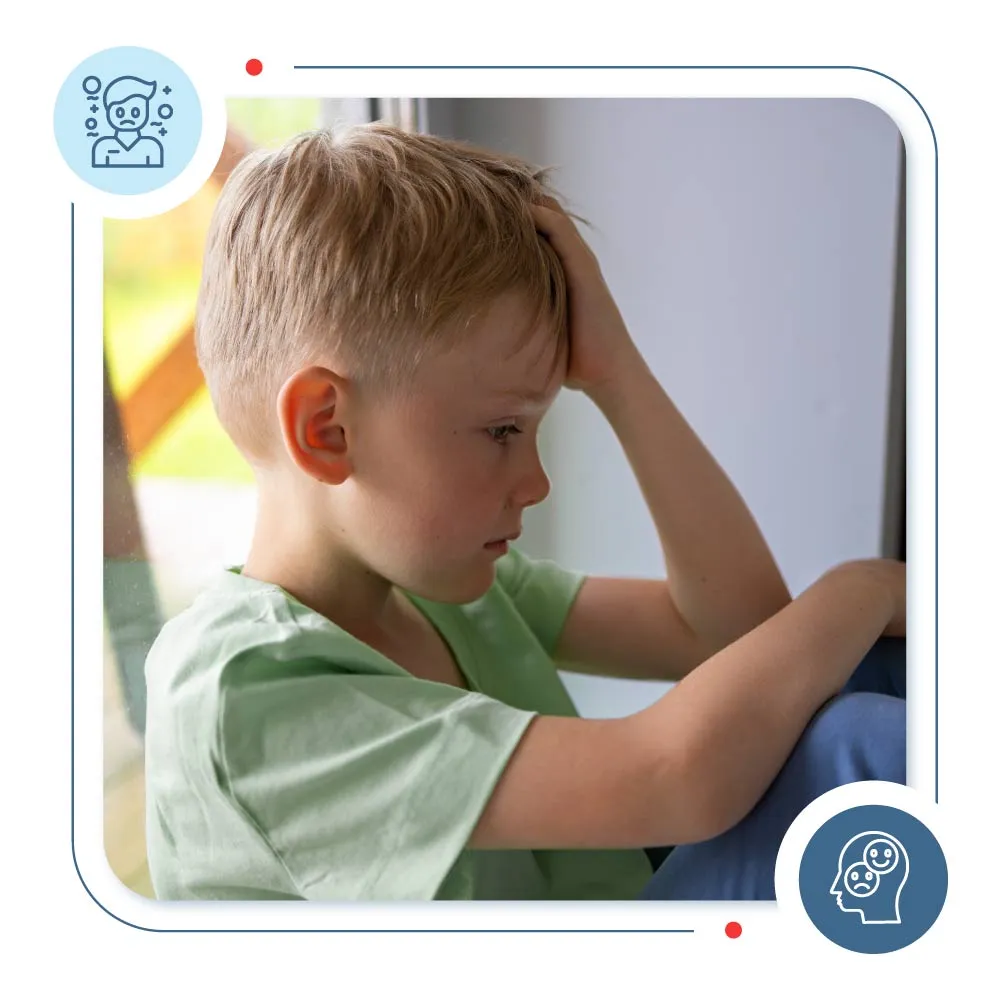Personality Disorders

What Are Personality Disorders?
A personality disorder is a mental health condition defined by a fixed and disruptive pattern of thinking, behaving, and relating to others. While everyone is different based on their habits and preferences, and there is no one standard “normal” personality, disordered personality traits deviate markedly from cultural expectations. This causes profound distress, difficulty communicating with others, and relationship problems.
The general prevalence rate of personality disorders was observed as 7.8% in 2019 research, but it varies greatly across different regions of the world. High-income countries are suggested to have higher rates. Also, prevalence differs according to the specific type of personality disorder.
Mid Cities Psychiatry provides you with the expert services needed to diagnose your particular personality and offers you comprehensive treatment options for all kinds of personality disorders in Euless.

Personality Disorder Symptoms
Personality disorder symptoms manifest in diverse ways that especially depend on the underlying types of disorder you are suffering from. Nevertheless, the common symptoms you’re likely to suffer from are:
- Intense and unstable emotions
- Fear of abandonment
- Impulsive and risky behavior
- Struggling with relationships
- Getting extremely angry is not appropriate for the situation
- Unable to cope with stress
- Difficulty interacting socially



Causes of personality disorders
Personality disorders are thought to result from a complex interplay of genetic as well as environmental factors, though no single accurate cause has yet been identified. Several risk factors include:
- Having a family history of personality disorder traits in 1st-degree relatives
- Altered brain structure is observed in personality disorders as revealed by various studies. Brain variations are commonly seen in the frontal lobe, amygdala, hippocampus, and grey matter
- Psychosocial trauma, especially experienced in childhood
- Verbal or physical abuse

Personality disorder types
The most recent classification from the Diagnostic and Statistical Manual of Mental Disorders (DSM-5) has included different personality disorders under 3 clusters:
Cluster A
Odd or eccentric personality disorder traits define cluster A. This cluster covers 3 personalities.
- Paranoid Personality Disorder: People with paranoid personality disorder are highly suspicious of others, never trust them, and strongly believe that others are plotting against them.
- Schizoid Personality Disorder: Schizoid people stay isolated and prefer not to make interpersonal relationships. They express fewer emotions than usual and miss out on nonverbal cues.
- Schizotypal Personality Disorder: They are likely to have unusual thoughts and false beliefs clashing with social norms, such as hearing sounds or seeing people.



Cluster B
Cluster B includes overly dramatic, emotional, or erratic behavioral aspects of personality. Different personality disorders included in this cluster are:
- Borderline Personality Disorder: People with borderline personality disorder experience intense fear of being left alone, which they link back to insufficient parental care during childhood. This personality disorder diagnosis can be made as individuals experience extreme mood swings and trouble managing their emotions. They are uncertain about themselves and seek a high level of care from others. They frequently make threats about harming themselves or express suicidal ideations.
- Histrionic Personality Disorder: Patients with Histrionic Personality Disorder show intense emotional states to draw others’ attention, but these emotional outbursts are merely superficial and short-lived.
- Narcissistic Personality Disorder: People with Narcissistic Personality Disorder have a belief in their exceptional qualities, which stems from their achievements or position of power. They are indifferent to others’ feelings and emotions. A narcissist depends on constant admiration from other individuals to satisfy their needs. They think others feel envious of their accomplishments and cannot accept constructive criticism.
- Antisocial Personality Disorder: People with Antisocial Personality Disorder disregard others, their feelings, and rights. They get involved in aggressive acts, violate the laws with no sense of remorse, and often show reckless behavior.
- Having a family history of personality disorder traits in 1st-degree relatives
- Altered brain structure is observed in personality disorders as revealed by various studies. Brain variations are commonly seen in the frontal lobe, amygdala, hippocampus, and grey matter
- Psychosocial trauma, especially experienced in childhood
- Verbal or physical abuse

Cluster C
Cluster C comprises personality disorders exhibiting extreme anxious or fearful behavior.
- Avoidant Personality Disorder: People with avoidant personality disorder assume that they are not as good as others, making them intensely fearful of being rejected or made fun of. They avoid situations involving conflicts and face trouble making interpersonal relationships.
- Dependent Personality Disorder: They depend on others excessively for making decisions or being taken care of. People with dependent personality disorder express clingy, insecure, and submissive behavior.
- Obsessive-compulsive personality disorder: People with this personality disorder are highly obsessed with order and symmetry and follow strict schedules. They get extremely anxious due to disrupted routines or deviations from established patterns. This personality disorder presents similar features but remains distinct from obsessive-compulsive disorder.



Treatment of personality disorders
Personality disorders are difficult to diagnose and even harder to treat. But Mid Cities Psychiatry has you covered. Our expert team offers a variety of comprehensive treatment approaches for all personality disorders.

FAQs
01
How do I know if it's a personality trait or a specific personality disorder?
All people possess certain peculiar habits that differ from other individuals. However, while your personality traits help you adapt to changing environments, personality disorders are usually atypical of what is considered customary.
02
How is a personality disorder diagnosed?
We recommend that patients receive psychiatric evaluations based on DSM-5 criteria conducted by expert psychiatrists as part of their diagnosis process for personality disorders.
03
Can I live normally with a personality disorder?
A life with a personality disorder presents many difficulties for affected individuals. The management of interpersonal relationships, along with your social interaction, proves difficult for you. However, getting early support and timely interventions can help control your symptoms and improve your quality of life.
04
Can I outgrow personality disorders?
Patients rarely become free of their personality disorder, but appropriate therapy enables successful management of their symptoms.
05
Can a person be diagnosed with multiple personality disorder?
Yes. People sometimes show personality patterns that do not cover the criteria of traditional diagnostic groups and display multiple personality disorder characteristics. The DSM-5 criteria list such presentations into a separate category called “Other Specified Personality Disorder.”
Real Stories, Real Recovery





We provide a comprehensive care provision for the most common mental issues people struggle with, such as PTSD, ADHD, OCD, anxiety, depression, sleep disorder, schizophrenia, and numerous other mental health conditions.





